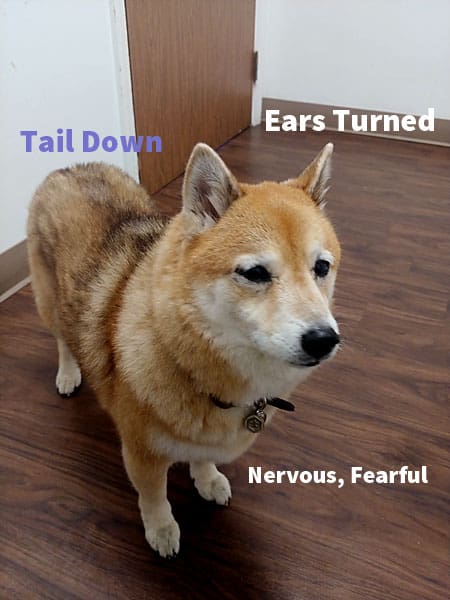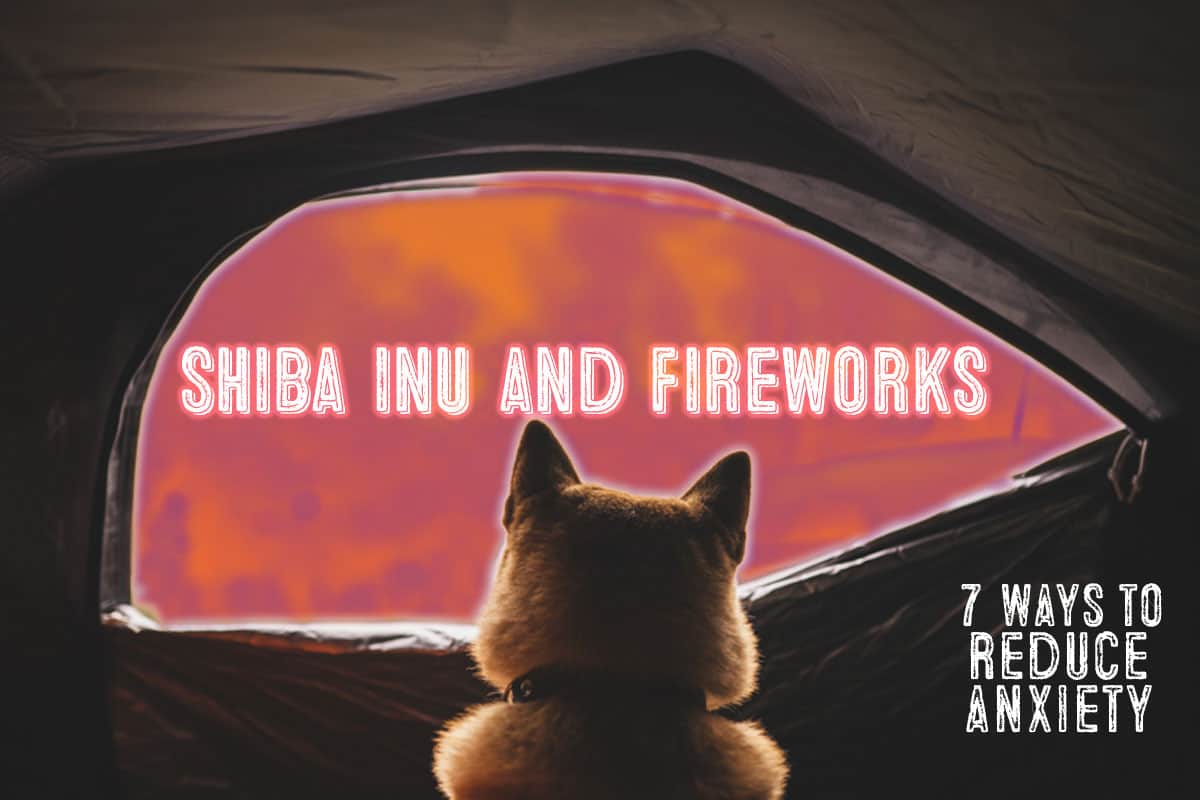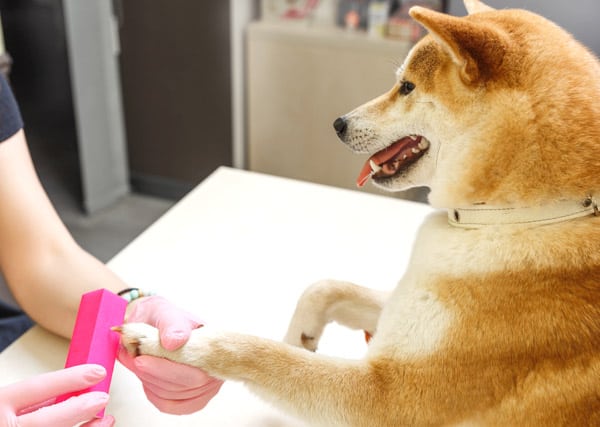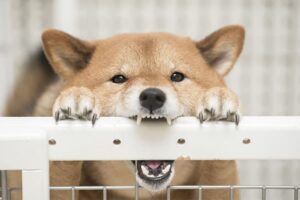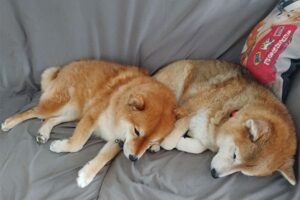Shiba Inu Mental and Emotional Health
Learn about the common emotional issues many Shiba Inu's face Common Shiba Inu Problem – Anxiety
Common Shiba Inu Problem – Anxiety
Shiba Inu anxiety issues can be difficult to handle – to both the dog and the owner.
Shiba Inus with anxiety experience stress due to their fears. These sometimes irrational fears can lead to unsafe behaviors such as running away, and / or bodily harm due to excessive scratching, clawing, or biting.
Owners with anxious dogs often feel helpless and stressed due to not knowing what methods can help their dog with its anxiety.
Some unknowing owners contribute to their dogs anxiety by being anxious and fearful themselves. Owners that exhibit both stress and fear during their dogs anxiety attack will only make the issue worse.
There are a variety of methods and products available today to help your Shiba Inu with anxiety. Read on to see which methods would work best for both you and your Shiba Inu.
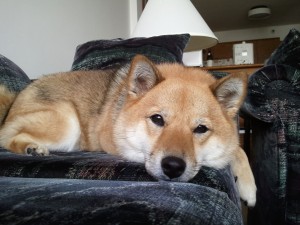
Dogs can suffer from anxiety and depression just like humans
Symptoms of Dog Anxiety
Depending on the severity of the dog’s anxiety symptoms can be barely perceptible to severe.
Common anxiety symptoms are attempting to flee / hide, panting, trembling, pacing, chewing, defecation / urination and also aggression.
It is important to determine if your dog has a true anxiety issue or if the dog is simply being disobedient.
For example, a dog with true separation anxiety will be begin showing symptoms of anxiety before you even leave the house.
You might witness physical symptoms such as pacing, whining and panting. When you do finally leave, anxious dogs may become destructive in an effort to reduce their anxiety.
Disobedient dogs, on the other hand, do not have anxiety but have simply learned that they can engage in destructive behaviors that they enjoy when you are not around.
It is important to distinguish if you dog is truly anxious or simply disobedient and curious.
Understanding the differences between these two scenarios will allow you to take a proper course of action to rehabilitate your Shiba Inu.
Causes of Shiba Inu Anxiety
Improper Puppy Socialization
Improper socialization during puppyhood is one of the root causes of many Shiba Inu anxieties. Shiba Inus are an ancient breed of dog that is less “domesticated” than other dog breeds. Because of this fact, early socialization is even more critical for Shiba Inu puppies.
Socializing your puppy during early puppyhood (6-14 weeks) is absolutely critical. During this stage, your puppy learns confidence – but they also learn fear.
Exposing your puppy to various noises and stimuli in a positive manner will help them become well adjusted Shiba Inu adults.
Genetics and physiology are also contributing factors in canine anxiety. In a recent Norwegian study that was published in Applied Journal Veterinary Medicine, it was found that out of 5,235 dogs, roughly 23% of the dogs were fearful of noises.
Certain dog breeds, including the Shiba Inu were far more noise fearful than other breeds.
Additionally, it was found that female dogs were 30% more likely to be fearful of noise than male dogs and neutered dogs were 72% more likely to be noise fearful than unaltered dogs.
External Experiences
Unpleasant life experiences such as a moving to a new environment can also induce dog anxiety. So can traumatic events and illnesses.
In these situations, anxiety can also be accompanied by depression.
Types of Dog Anxiety
Just as in humans, the triggers for anxiety in dogs can be numerous. The three most prevalent types of canine anxieties are separation, noise and social anxiety.
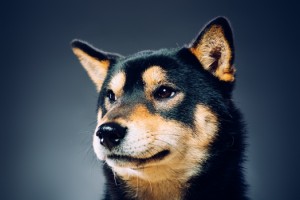
Common noise triggers include thunder, fireworks, and skateboards.
Dogs with this anxiety usually exhibit fleeing / hiding behavior. Owners must ensure that their nervous dogs cannot escape during episodes of anxiety.
Separation Anxiety – Dogs are pack animals and have evolved to be social. Therefore separation anxiety is a common anxiety that many dogs suffer from – especially those that have been kenneled in the past.
Dogs with separation anxiety will bark, chew, urinate / defecate when left alone. Dog owners find this issue especially difficult and frustrating as it affects everyone in the household.
Social Anxiety – Social anxiety often stems from inadequate socialization during the critical puppy development period of birth until 16 months. Separating puppies too early from their mother and litter also lead to social anxiety issues.
Puppies should be kept with their mothers until 8 weeks of age at minimum to receive proper nutrition and learn socialization.
Dogs with social anxiety will either withdraw or react with aggression.
Treatment and Management of Anxiety Issues
The most important aspect of managing your dog’s anxiety issues is to first ensure that you are not contributing to their anxiety in any way.
You must always have a calm and confident demeanor in order for your dog to trust and follow you. If you get distressed, irritated, angry or fearful around your dog during their anxious moments than you are just adding to their anxiety.
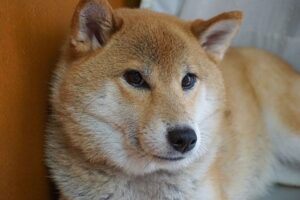
Treating anxiety in dogs consist of various combinations of behavior modification, medication, and environmental changes. Holistic therapies such as vigorous exercise and herbal supplementation can also help certain cases.
Some well known animal behaviorists have been talking about the promising use of scent therapy in the treatment of anxiety issues.
Since dogs have such tremendous olfactory capabilities, it would make sense to devise a treatment that targeted these senses as a possible distraction or positive reinforcement.
Behavior Modification –
Common behavior modification techniques used in treating dog anxiety includes counter conditioning and desensitization.
An example of counter conditioning with a noise-fearful dog would be to introduce and reinforce a positive occurrence that happens at the same time of the noise.
For example, during a thunderstorm you would give your dog something that the dog associates positively with. This could be a favorite toy or treat.
~ Well adjusted Shiba taught to enjoy grooming
With a dog that has separation anxiety, counter conditioning could involve leaving a very enticing treat hidden in a toy when you have to leave
Upon your departure, the dog will be temporarily distracted trying to retrieve the treat from the toy.
The dog will eventually get to the treat and create a positive association of you leaving and a delicious treat.
Desensitization
The use of desensitization therapy must be done cautiously. Ideally, this type of therapy should be performed on younger dogs.
Older dogs that are set in their ways respond less favorably to this type of therapy. There is a risk that the older dog can become more anxious and traumatized if the desensitization is not done properly.
Desensitization involves exposing the dog to their anxiety trigger is small doses in order to try to acclimate the dog to the trigger and possibly develop new reactions to it.
This technique will not work for all triggers as we cannot readily produce a thunderstorm, but it can be used with other triggers such as skateboard noise or automobile noise.
With dogs that have separation anxiety, desensitization would involve leaving the dog for a short amount of time at first – and then gradually increasing the time.
It is also important to understand how dogs with separation anxiety respond to “triggers”.
These triggers such as putting on work clothes before leaving must be addressed also.
To desensitize a dog to the triggers, you would follow the same desensitization procedures. For example, after putting on your work clothes you would actually perform a different action instead of immediately leaving.
A good starting strategy for dogs with separation anxiety would be to implement both counter conditioning (treat inside toy) and increasing desensitization time intervals.
Medication
Medication should only be considered in the most serious of cases.
You should not medicate your dog with over-the-counter or prescription drugs for humans without veterinarian approval.
In the past few years, the use of prescription medicine for dogs have increased by over 30%.
While there are many cases of medications helping dogs – there are also cases where medications can be harmful.
The key is to discuss your options openly with a vet that has experience with dog anxiety.
Drugs alone will not cure your dog of serious issues but can be used in conjunction with other forms of treatment such as behavior modification.
There are circumstances when the use of medication is absolutely critical for the safety of the dog and it’s owners.
These are cases where dog’s are so anxious that they may chew on a door until their gums bleed and their teeth chip off.
Medication would also be warranted is situations where anxious dogs become aggressive and dangerous dogs.
Medications for anxious dogs are categorized in three main categories –
Benzodiazepines (BZs)
Selective Serotonin Reuptake Inhibitors (SSRIs)
Tricyclic Antidepressants (TCAs)
Natural Supplements
Before heading directly to prescription medications, there are several natural options that you may want to try on your dog. These options include supplements, nutraceuticals, and pheromones.
Supplements – Certain supplements may help or ease some of your dog’s anxiety symptoms.
Harmonease ~ This supplement contains extracts of Magnolia officinalis and Phellodendron amurense, and was shown to be 60% effective in a study of noise-related stress.
There are no reported side effects, and is available as a chewable tablet.
Anxitane ~ Anxitane contains an amino acid, L-theanine, that works on the dog’s nervous system, to help calm the dog’s nerves.
It should not be used in cases of severe dog anxiety or with dogs with aggression issues. It is available as a flavored, chewable tablet.
Click here for additional supplement recommendations.
Nutraceuticals – a food containing health-giving additives and having medicinal benefit.
Composure ~ Composure is a chewable supplement similar to Anxitane. It contains L-theanine, along with proprietary C3 and Thiamine.
Thiamine helps the body build other amino acids that help to restore the nervous system’s neurochemical balance.
The proprietary C3 (colostrum calming complex) works to reduce stress and improve cognitive function. There are no reported side effects, and is flavorful to dogs.
Pheromones – are naturally occurring odorless substances the fertile body excretes externally, conveying an airborne signal that provides information to, and triggers responses from, the opposite sex of the same species.
D.A.P.- Dog Appeasing Pheromone ~ D.A.P. is commonly recommended by veterinarians and behaviorists to help treat canine anxiety.
The efficacy of this product is not known but has been shown to help some dogs. It is available in a diffuser, spray, or collar, and has no known side effects or interactions with medications.
The efficacy of natural supplements can vary quite widely.
Talk to your regular or holistic veterinarian about your options. In many cases, trial and error is the only method to see which if any of the natural supplements can produce any improvement in your Shiba Inus anxiety issues.
Final Thoughts
Anxiety issues are one of the toughest issues both dogs and dog owners have to face.
There is no magic bullet to make it go away and often times months or years are needed to see any improvements.
The most important thing to remember is that you are taking an important step into learning as much as you can about the issue.
You are being proactive in finding solutions and options for your beloved pet.
Remember to seek out as much professional help as you need.
Veterinarians, dog behaviorists, and dog trainers can all give you tips and advice on how to properly manage your Shiba Inu’s anxiety.
It’s best to do as much as you can as early as you can so that your Shiba’s anxiety does not worsen over time.
Remember, you two are in for the long haul and with the right treatment a much brighter future awaits the both of you.
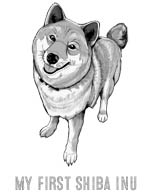
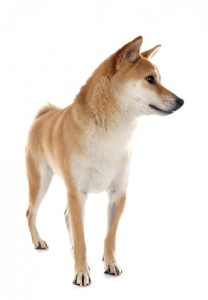 Common Shiba Inu Problem – Anxiety
Common Shiba Inu Problem – Anxiety